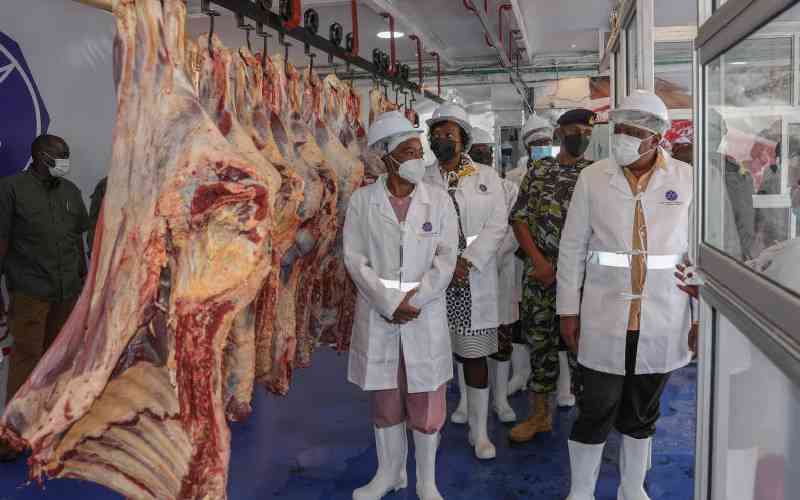×
The Standard e-Paper
Kenya’s Boldest Voice

When former President Uhuru Kenyatta toured the Kenya Meat Commission slaughterhouse. [File, Standard]
Inadequate capacity to meet quality and safety standards remains among the myriad of challenges facing Kenya's meat industry, stakeholders have been told.